Russian ambassador killer received order from Gulenist covert imam: Turkish prosecutors
Turkish judicial officials say the murderer of the Russian ambassador to Ankara, Andrey Karlov, received orders on the assassination from a senior member of a movement led by US-based opposition cleric Fethullah Gulen, whom the Ankara government accuses of having masterminded the July 2016 coup attempt against President Recep Tayyip Erdogan, ten days before the act of terror.
Turkish prosecutors recently concluded a two-year investigation, and indicted 28 suspects, including Gulen himself, and other high-ranking members of the movement.
According to the indictment on Karlov's assassination, former Information and Communication Technologies Authority (BTK) employee Sahin Sogut was "covert imam" of the assassin Mevlut Mert Altintas.
The indictment noted that Altintas and Sogut communicated via their social media and e-mail accounts.
The pair was in close contact ten days before the assassination, and Altintas got detailed instructions regarding the murder.
Altintas, clad in civilian clothing, shot down Karlov as he was inaugurating a photo exhibition in the Turkish capital city of Ankara on December 19, 2016.
After carrying out the murder, the assailant went on a rant caught on camera, which saw him bawling “Don’t forget Aleppo, don’t forget Syria!”
The assassination, condemned by the Turkish and Russian leaders as an attempt to sour Ankara-Moscow ties, came amid cooperation between the countries over the Syrian crisis.
On December 21, 2016, Turkish-language Hurriyet daily newspaper identified Altintas as a member of the team providing security for Erdogan.
The paper said he had served in the taskforce ensuring that no harm would come to the head of state in public events. The group played second fiddle to Erdogan’s personal bodyguards.
Altintas had provided security for the Turkish president eight times since the botched putsch against Erdogan. Over all, he had served two and a half years in anti-riot police.
Turkish Foreign Minister Mevlut Cavusoglu said at the time that Ankara blamed the Gulen movement for the assassination plot.
On January 12, Turkish security officials arrested a former employee of the country’s national telecommunications regulatory over Karlov’s murder.
On November 25, 2017, a criminal court in Ankara ordered the arrest of the chairman of the Guru Media Broadcast Group, Hayreddin Aydinbas, over the assassination.
Aydinbas had earlier given his testimony to Adem Akinci, a prosecutor from the Ankara Chief Public Prosecutor’s Office.
He confessed that he had links to Gulen movement, but broken away from it back in 2008.
During the 2016 botched putsch, a faction of the Turkish military declared that it had seized control of the country and the government of Erdogan was no more in charge. The attempt was, however, suppressed a few hours later.
Ankara has since accused Gulen of having orchestrated the coup. The opposition figure is also accused of being behind a long-running campaign to topple the government via infiltrating the country’s institutions, particularly the army, police and the judiciary.
Gulen has denounced the “despicable putsch” and reiterated that he had no role in it.
“Accusations against me related to the coup attempt are baseless and politically-motivated slanders,” he said in a statement.
The 77-year-old cleric has also called on Ankara to end its “witch hunt” of his followers, a move he says is aimed at “weeding out anyone it deems disloyal to President Erdogan and his regime.”
Turkish officials have frequently called on their US counterparts to extradite Gulen, but their demands have not been taken heed of.
Turkey has been engaged in suppressing the media and opposition groups suspected to have played a role in the failed coup.
Tens of thousands of people have been arrested in Turkey on suspicion of having links to Gulen and the failed coup. More than 110,000 others, including military staff, civil servants and journalists, have been sacked or suspended from work over the same accusations.
The international community and rights groups have been highly critical of the Turkish president over the massive dismissals and the crackdown.
Showcasing missile with ‘extraordinary destructive power’ sign of refusal to renounce defense: IRGC
US imposes ‘terrorist-grade sanctions’ on UN expert, ICC judges amid Gaza accountability drive
VIDEO | Press TV's news headlines
Senior Russian general shot and wounded in Moscow: Officials
UK ordered in 'milestone' court ruling to pay $570 million for colonial-era massacre
VIDEO | Defying the rubble, Gaza opens its first face-to-face school since start of war
‘Ready for next round’: Million-man rally in Yemen backs Gaza, resistance
FM Araghchi departs Muscat for Doha following nuclear talks with US







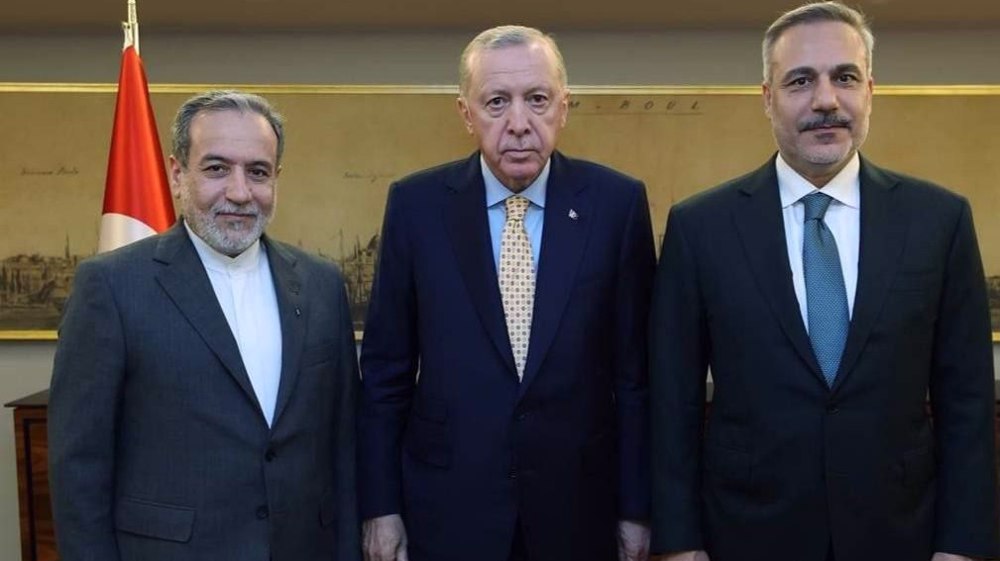
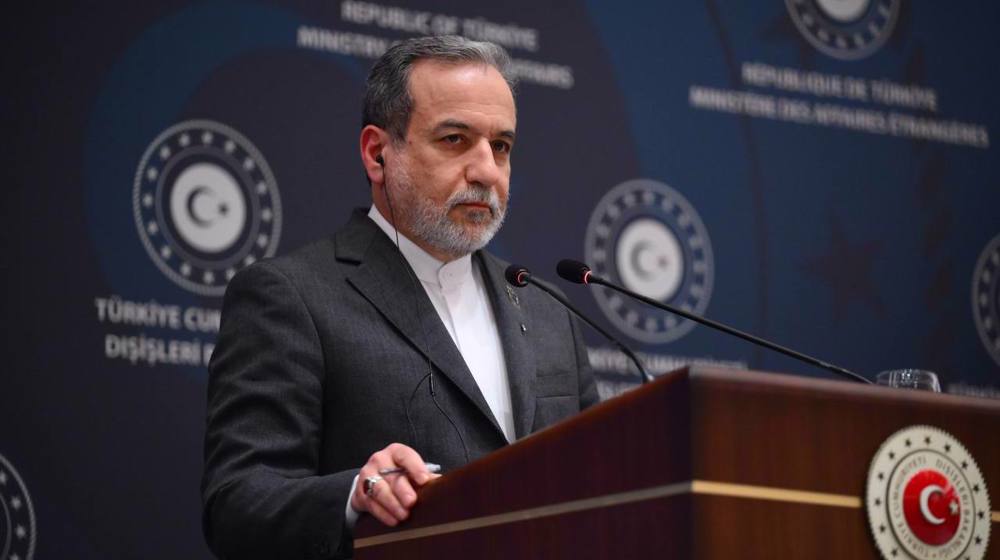



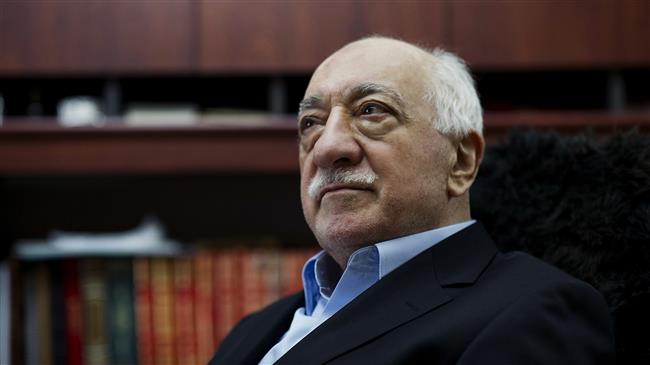
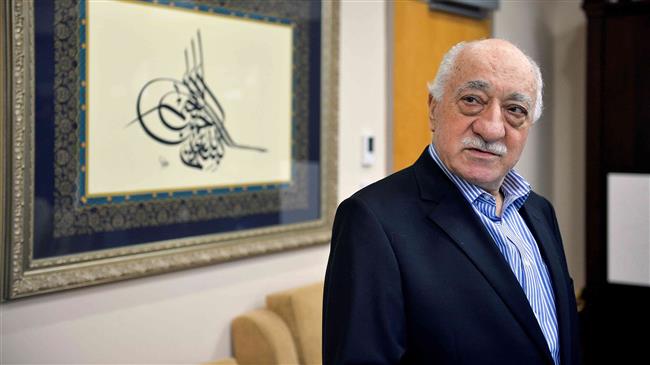
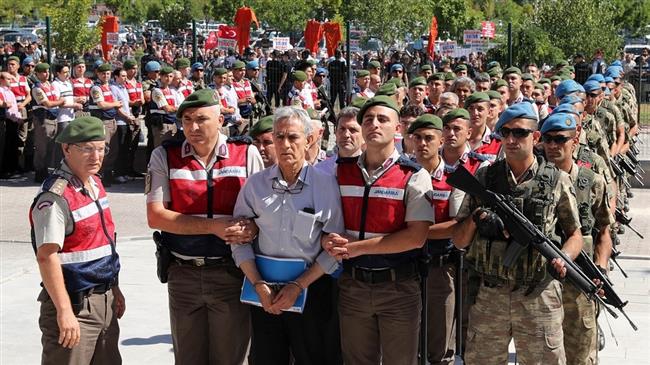
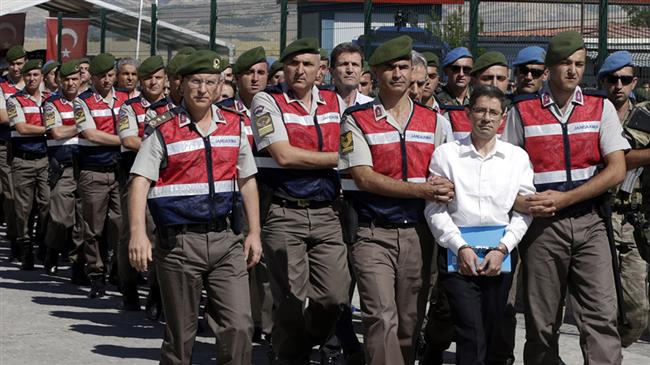
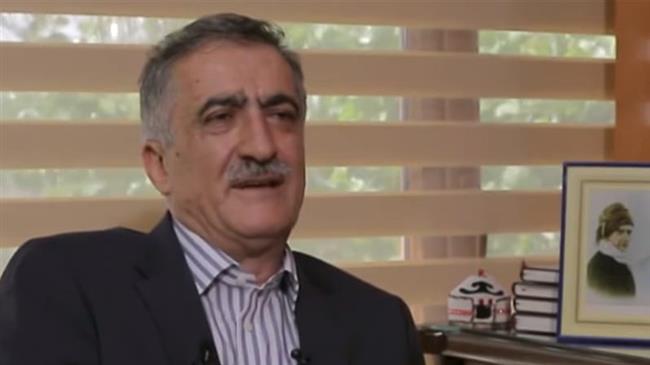
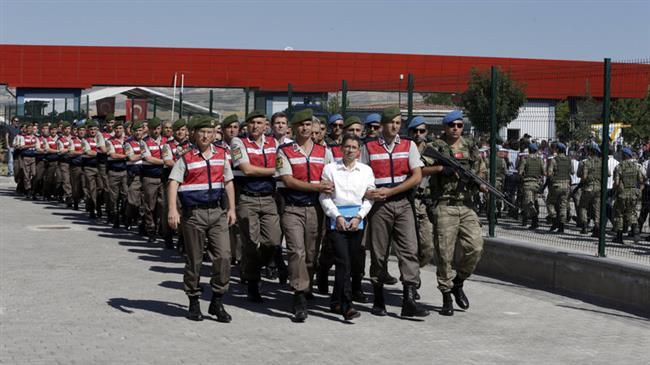

 This makes it easy to access the Press TV website
This makes it easy to access the Press TV website